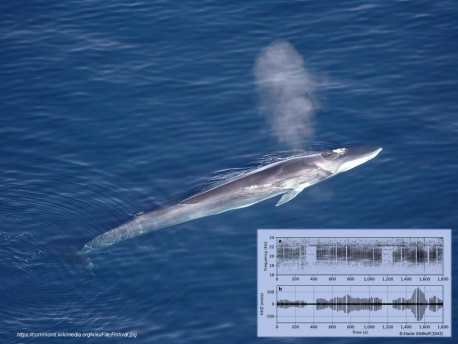IGA Lecture on Wednesday, 19 March 2025
19/03/2025 19:30
19/03/2025 20:30
M4, The Museum Building, Trinity College Dublin
TCD
Event Attendance Instructions
The Irish Geological Association (IGA) are having a lecture in Trinity College Dublin on Wednesday, 19 March. Dr. Martin Möllhoff, Dublin Institute of Advanced Studies, will be giving a lecture titled “Fin Whale Song in Seismic Land Data: New Opportunities for Coastal Cetacean Monitoring". Martin is part of both the Irish National Seismic Network and the QuakeShake projects, both of which are co-funded by Geological Survey Ireland.
Abstract: Fin whales, the second-largest creatures on Earth, produce some of the most powerful vocalizations in the animal kingdom. While these sounds are traditionally captured using underwater hydrophones, we uncover that fin whale songs can also be detected from land. This discovery, made in Ireland, reveals that these vocalizations generate vibrations in coastal areas that are strong enough to be recorded by affordable, land-based seismometers used for citizen science projects. This new approach provides a cost-effective method for monitoring near-coastal fin whale activity, while also empowering the public to engage in marine science research. Our findings hold the potential to enhance our understanding of fin whale migration patterns and social behaviours, which are currently limited.
Biography: Dr. Martin Möllhoff studied geophysics in Cologne, Germany, and Galway. In 1999, he commenced his career as a Technical Officer with the Geophysics Group at University College Dublin (UCD), where he also completed a PhD in seismology. In 2015, he joined the Dublin Institute for Advanced Studies (DIAS) and was appointed Director of Seismic Networks in 2018. Throughout his career, Martin has garnered extensive expertise in the installation and management of seismic networks, often in remote and challenging environments. His primary research interests lie in environmental seismology, with a particular focus on ocean waves, water flow, volcanic activity and more recently the intriguing phenomenon of whale vocalizations.
